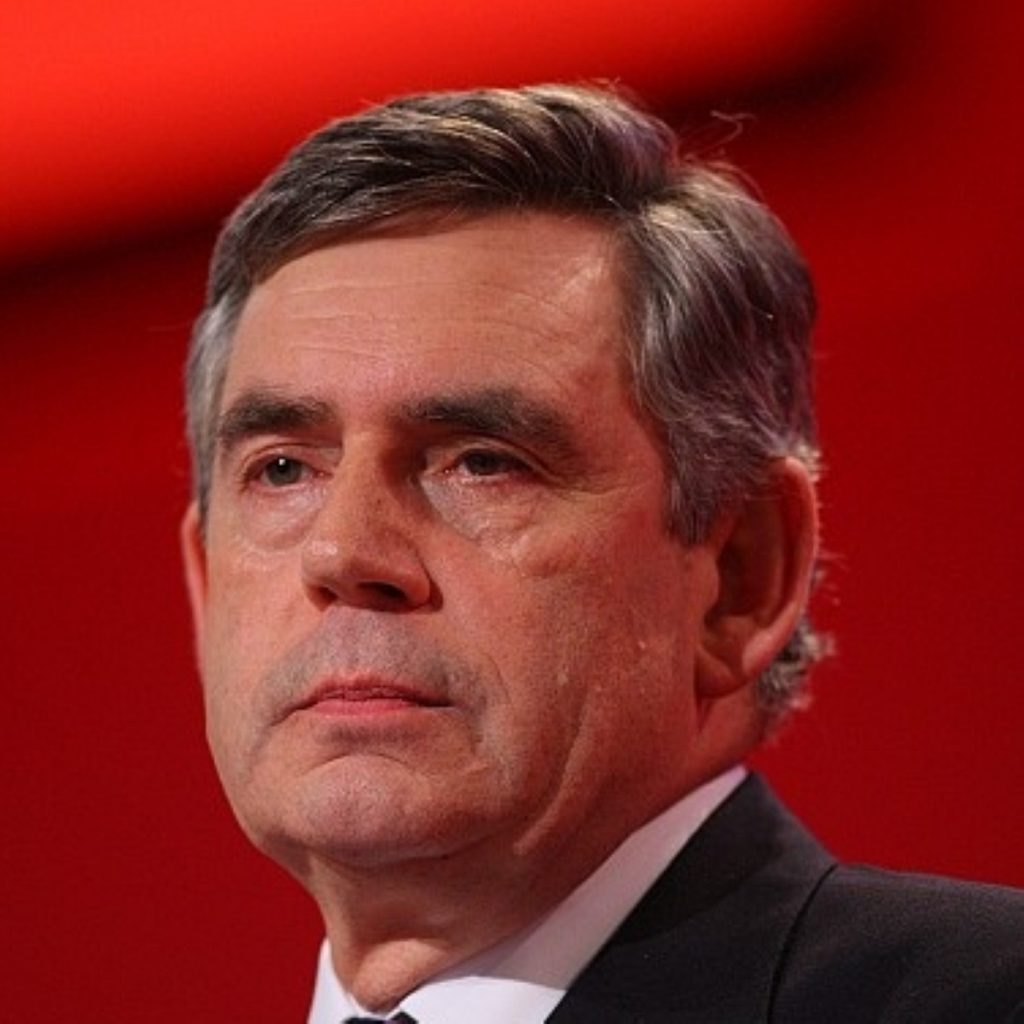Analysis: The art of crying
The public, whose default attitude towards politicians is one of deep suspicion, are at their most sensitive when our elected representatives cry. Gordon Brown’s gamble this weekend might not pay off.
Politics isn’t just about ideas. It’s about people. So politicians need to show emotion, sometimes, to help us realise they’re ordinary human beings too.
The prime minister has spent much of his premiership apparently doing his best to ignore this unfortunate home truth. We’ve grown so used to calling Brown ‘dour’, ‘reserved’ and ‘guarded’ it’s now almost a reflex. He has deliberately sought to shield his children from the public glare. What a contrast with his naturally charismatic predecessor, whose unpopularity stemmed from entirely different personality flaws.


Recent months have seen a shift, however. It turns out that far from being the grumpy old man we thought he was, the prime minister is as cute and cuddly as my baby sister’s favourite teddy bear. Brown has shod his crusty skin with some lively PMQs performances and a serious of increasingly emotional interviews. This weekend he gives the most emotional of them all.
“We had a weekend where we just now she was not going to survive,” Brown says as he’s interviewed on ITV1’s Piers Morgan’s Life Stories. “She was baptised, we were with her and I held her as she died.” It looks as if Brown is struggling to cope; if not actually crying, he certainly he is what officials call “teary”, welling-up with emotion. His wife Sarah Brown is much more openly emotional.
Brown finishes: “It was – you know – Sarah and I just – we found, we found it very difficult because it was her first child and she was such a beautiful baby.” Never before has he offered himself to the public in this way. How will they respond? And – it is my solemn duty to analyse these things – will this sort of thing affect the outcome of the general election?
No one can fail to be moved watching this video. We can only sympathise at the loss, in and of itself. But there will be many who feel that – setting aside these unavoidable emotions – seen through the lens of classic British reserve such tabloid openness about such matters is a little distasteful.
There’s no point looking to other instances of crying in politics for insight. Take Margaret Thatcher’s tears as she finally left No 10 and her decade in power. Or Mark Oaten’s sobbing on Tower Block of Commons, Channel 4’s excellent reality TV show. Or even (some may disagree with this one) Alastair Campbell’s tears of frustration about the Iraq inquiry on The Andrew Marr Show last weekend. These are all irrelevant to the present case. Why? Because, for them, the political stakes were much reduced. Thatcher, Oaten and, arguably, Campbell’s career are already over. Ignoring the pressures of getting posterity on side, none of them are in Brown’s position. None of them have a general election campaign to win in the next three months.
The death of David Cameron’s son Ivan prompted a huge outpouring of popular sympathy (more clichés, but in this post-Diana world they come so easily). Again, there is not a parallel here; the Tory leader, in his moment of grief, hid himself away from the cameras. The crucial event was happening then, rather than being talked about openly years later.
What marks Brown’s case out from these others is the timing of the interview. The significance of his decision to expose himself to this sort of raw, gritty way is heightened by his previous reluctance to open up. Any decision of this kind is inherently political; as polling day approaches it would be utter folly to deny it.
Here lies Brown’s problem: you can’t separate the politician from the human being. The prime minister knows he will benefit from this. It’s that knowledge which taints his tears. But by showing himself in this light he will have calculated that more people will be compassionate than critical. Ultimately, this is a man who has suffered a terrible, human loss. It will be up to individuals to decide whether their cynicism overcomes their sympathy.









